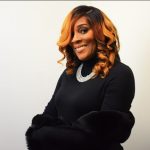I’m a Financial Expert: Here Are My Top 3 Budgeting Tips for People Who Hate Budgeting

Commitment to Our Readers
GOBankingRates' editorial team is committed to bringing you unbiased reviews and information. We use data-driven methodologies to evaluate financial products and services - our reviews and ratings are not influenced by advertisers. You can read more about our editorial guidelines and our products and services review methodology.

20 Years
Helping You Live Richer

Reviewed
by Experts

Trusted by
Millions of Readers
Making a budget is all about figuring out what money comes in and where it goes during a specific timeframe. The goal is to offset the income versus the expenditures intending to hit a break-even or optimistically speaking, reach the end of the set period with a surplus of resources. Many individuals feel that budgets can be restrictive and overbearing when the expenditures exceed the income.
It causes people to face their financial reality and know decisions must be made, so a certain standard of living can be established or maintained without negative impact or guilt. What guilt you might ask? Well, the guilt that comes from acknowledging that one must make serious adjustments because the lifestyle they upkeep is not sustainable over an extended period for their finances.
When a person creates a budget, they are responsible for aligning their spending habits with their overall income. Because budgets can feel restrictive, many people opt to spend, spend, spend, and ignore the tool that can guide people in achieving their overall life and financial goals, while still enjoying life.
If you hate budgeting, sharing budgeting tips may not appeal to you. However, here are three adjustments you can make to manage your finances without feeling overwhelmed by implementing or creating an entire budget. The implementation of these ideas will not replace a budget, but it should help individuals get one step closer to achieving financial goals, along with gaining control over their overall spending habits.
Have a Clear Understanding of Your Income and Your Spending
Have a clear understanding of your net income that is deposited into your checking account every pay period. If you are not willing to create a budget, you should make it a priority to have an idea of how much money you are bringing in each month. There are nondiscretionary expenses that must be accounted for, and it will guide your financial behavior. Several items include housing expenses and transportation costs for work.
While food is important and a nondiscretionary item, one must acknowledge their financial food patterns. There is a significant difference between a person who purchases groceries weekly, bi-monthly, or monthly versus an individual who eats out regularly. Someone who dines out regularly will have a higher food allocation than someone who cooks at home. Additionally, groceries are less expensive than eating outside of the home and a cooked meal can be enjoyed multiple times.
Change Your Payment Due Dates
Change all your payment due dates to line up with your payroll dates. People do not consider payment dates for existing bills. If the bill is presented to the bank days before your next pay period, without a budget, there may not be enough resources in the banking account to cover the bill.
While many banks offer overdraft protection and courtesy pay, the fees associated with bills hitting your bank account with insufficient funds can accumulate rapidly. What happens next is that one’s paycheck hits the account and the money you were expecting is decreased by the overdraft amount. This behavior leaves one in the red. A change of due date for the bills can potentially decrease that probability.
Use Cash To Cover Essentials
Use cash to cover ‘must have’ essentials or discretionary items. Taking an allocated amount of money each pay period to cover basic needs helps to control spending habits and decrease the probability of non-discretionary items being returned for insufficient funds. COVID-19 accelerated the trend towards a cashless society, a society where financial transactions are conducted without using banknotes or coins.
Cashless spending for products and services, with easy access from your phone and the swipe of a debit card, can definitely add up and accelerate overspending. Without a comprehensive budget, a small purchase item of even coffee or tea can leave the balance short in one’s bank account. If cash is used for such items, the risk is eliminated.
Making these minor adjustments will serve as a lifeline to individuals who are not prepared to complete an exhaustive, realistic budget that accounts for their spending patterns. It should help those who are living from paycheck to paycheck to minimize any excessive and financially devasting overdraft charges as well. It also helps people gain financial discipline simply by monitoring the small convenience items purchased throughout the month.
These three subtle changes will lead people closer to true financial stability.
Editor’s note: Dr. Nicole B. Simpson is a dedicated certified financial planner and the CEO and founder of Harvest Wealth Financial.
More From GOBankingRates
 Written by
Written by  Edited by
Edited by 

























